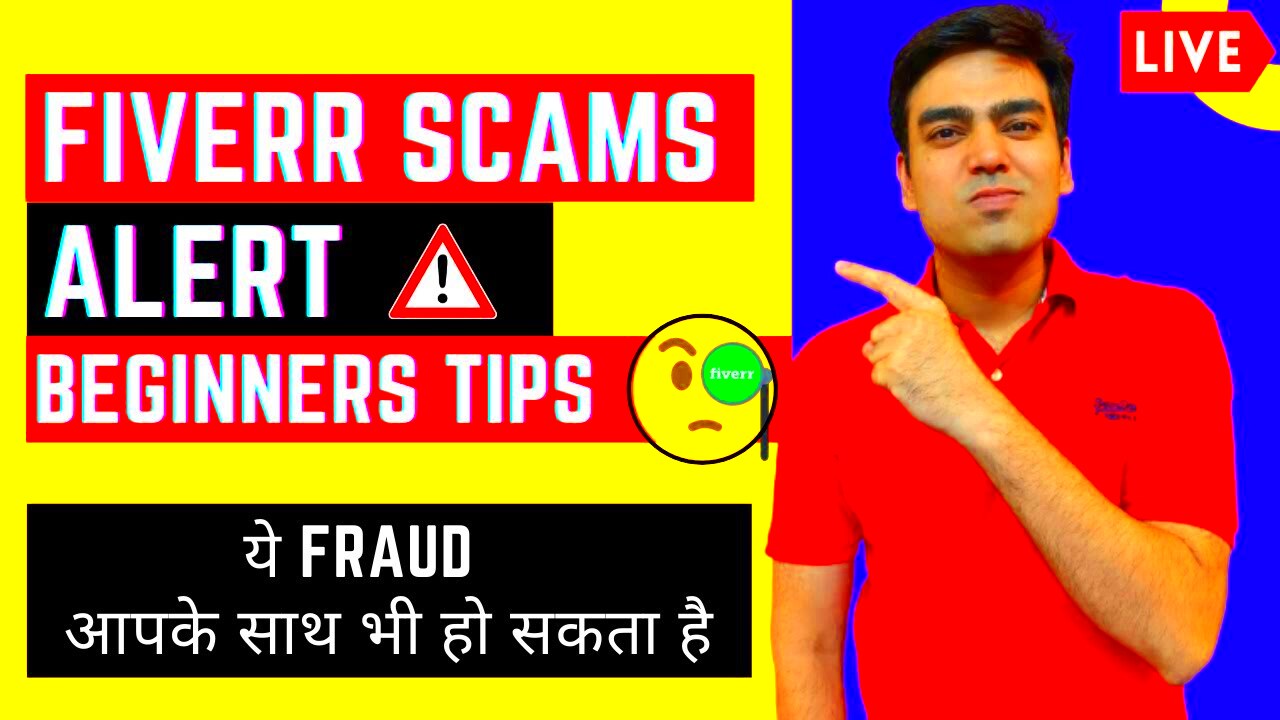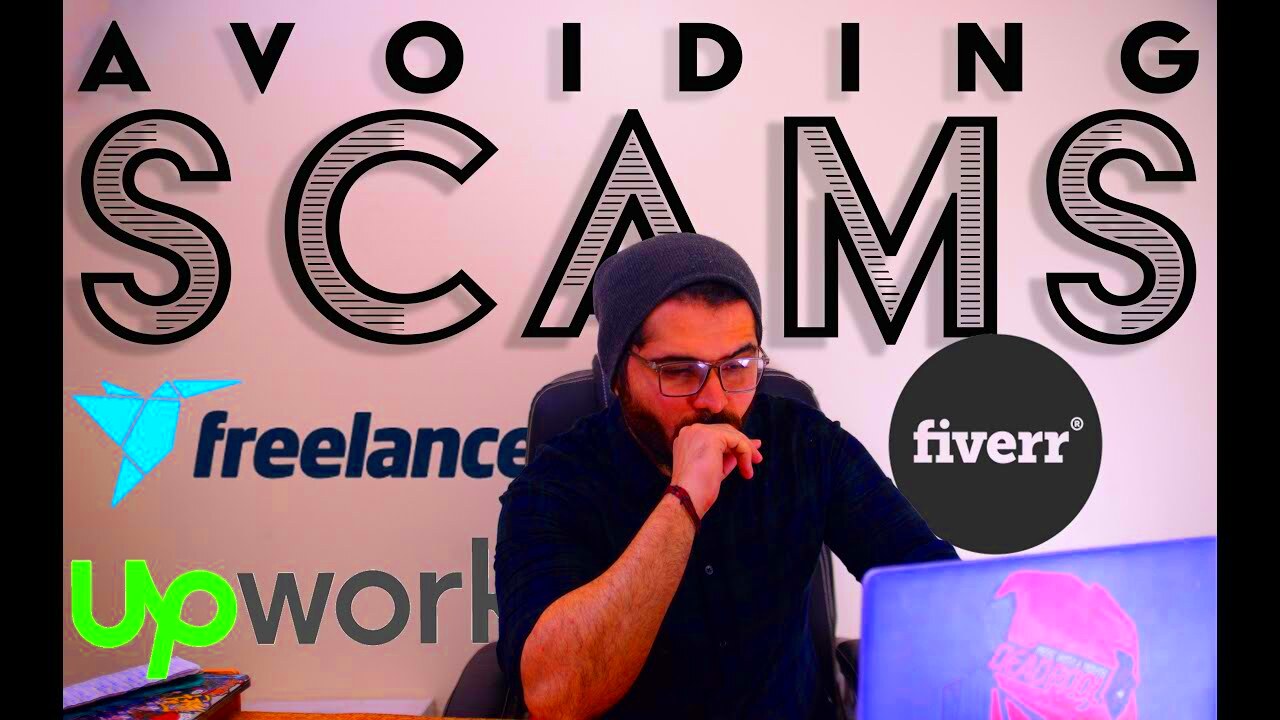Freelancing offers great opportunities, but it also attracts scammers. Knowing common scams helps you stay safe and protect your hard work. Here are some scams to watch for:
- Fake Job Listings: Scammers create fake job postings to collect personal information or money.
- Advance Fee Scams: Clients ask for payment upfront, promising work that never materializes.
- Phishing Attempts: Fraudsters send emails that look legitimate to steal login details.
- Too Good to Be True Offers: Offers with very high pay for little work often indicate a scam.
Being aware of these scams helps freelancers avoid costly mistakes and maintain a successful career.
Identifying Red Flags of Scams

Not all clients have good intentions. Recognizing red flags can save you from falling victim to scams. Look for these signs:
- Vague Job Descriptions: If a job posting lacks details about the project or payment, be cautious.
- Unprofessional Communication: Poor grammar and spelling in messages may signal a scammer.
- Pressure to Act Quickly: Scammers often rush freelancers into decisions to avoid second thoughts.
- Requests for Unusual Payment Methods: Be wary if a client asks for payment through unconventional channels.
Trust your instincts. If something feels off, take a step back and evaluate the situation.
Also Read This: How to Change Your Bank Account in Fiverr
Protecting Your Personal Information

Your personal information is valuable, and scammers often try to get it. Here are ways to protect yourself:
- Use a Professional Email: Avoid using personal emails. Create a separate email for freelance work.
- Limit Shared Information: Only share necessary details like your name and email, and avoid sensitive data.
- Enable Two-Factor Authentication: Use this feature on platforms you work with to add an extra layer of security.
- Keep Software Updated: Regularly update your antivirus and software to protect against malware.
By following these steps, you can keep your personal information safe and enjoy a secure freelancing experience.
Also Read This: Exploring the Different Types of Gigs on Fiverr
Using Secure Payment Methods

When freelancing, choosing the right payment method is crucial for protecting your earnings. Secure payment methods offer peace of mind, ensuring that your hard work is compensated fairly. Here are some tips for using secure payment methods:
- Use Established Platforms: Platforms like PayPal, Stripe, or escrow services provide secure transactions and buyer protection.
- Avoid Wire Transfers: Scammers often request wire transfers as they are hard to trace and recover.
- Set Clear Payment Terms: Agree on payment terms before starting a project. Decide whether you will be paid upfront, upon completion, or in installments.
- Consider Milestone Payments: For larger projects, consider breaking payments into milestones. This way, you get paid as you complete work.
By using secure payment methods, you reduce the risk of losing money and ensure a smoother freelancing experience.
Also Read This: Is Fiverr Seller Plus Worth It?
Verifying Client Credibility

Before jumping into a project, it’s wise to verify your client’s credibility. This step helps you avoid scams and ensures you are working with legitimate clients. Here are some ways to check their credibility:
- Check Client Reviews: Look for reviews and feedback from other freelancers. Positive reviews are a good sign of reliability.
- Request References: Don’t hesitate to ask clients for references from past freelancers they've worked with.
- Look for a Professional Online Presence: A legitimate client will often have a professional website or social media presence that reflects their business.
- Research Their Company: If you’re dealing with a business, do a quick online search to see if they are registered and have a good reputation.
Taking the time to verify clients helps you build trust and ensure a successful working relationship.
Also Read This: When Do You Pay on Fiverr? Understanding the Payment Process
Trusting Your Instincts
In freelancing, your instincts can be your best guide. If something doesn’t feel right, it’s important to listen to those feelings. Here’s how trusting your instincts can protect you:
- Pay Attention to Your Gut Feeling: If you feel uneasy about a project or client, take a step back. It’s better to be cautious than to rush in.
- Ask Questions: If you have doubts, don’t hesitate to ask the client for clarification. Their response can reveal a lot about their credibility.
- Take Your Time: Don’t rush into decisions. Give yourself time to think things through before accepting a job.
- Be Prepared to Walk Away: If a situation feels off, it’s okay to decline the offer. Your safety and security should always come first.
Trusting your instincts helps you navigate the freelancing world with confidence, leading to better opportunities and fewer risks.
Also Read This: Expected Earnings for Freelance Web Developers
Reporting Scams and Fraudulent Activity
If you encounter a scam or fraudulent activity while freelancing, it's important to take action. Reporting these incidents not only protects you but also helps others avoid similar experiences. Here’s how you can report scams effectively:
- Document Everything: Keep records of all communications, payments, and project details. This documentation will be crucial when reporting.
- Report to the Freelance Platform: If the scam occurred on a freelancing platform, report it immediately. Most platforms have protocols for handling fraud.
- Notify Your Payment Provider: If you sent money to a scammer, contact your payment provider to see if you can dispute the transaction.
- File a Complaint with Authorities: In many countries, you can report scams to local consumer protection agencies or the police.
- Share Your Experience: Consider posting about your experience on forums or social media. This can warn others about potential scams.
By reporting scams, you contribute to a safer freelance environment for everyone. Remember, awareness is key to combating fraud.
Also Read This: Starting as a Freelance Event Planner
Frequently Asked Questions
As a freelancer, you may have questions about scams and how to protect yourself. Here are some common queries and their answers:
- What should I do if I suspect a scam? Trust your instincts. Gather evidence and consider reporting it to the platform or payment provider.
- How can I tell if a job is legitimate? Look for clear job descriptions, professional communication, and positive reviews from other freelancers.
- Are there safe payment methods? Yes, platforms like PayPal, Stripe, and escrow services provide secure payment options with buyer protection.
- Can I recover money lost to a scam? It depends on the payment method used. Contact your payment provider for assistance.
- How can I educate myself about scams? Stay informed by reading articles, joining freelancer forums, and participating in webinars.
These answers can help you navigate potential scams and protect your freelancing career.
Conclusion
Freelancing is a rewarding journey, but it comes with risks, especially regarding scams. By understanding common scams, identifying red flags, using secure payment methods, and trusting your instincts, you can protect yourself effectively. Always be vigilant and proactive in your approach to safety. Remember to report any fraudulent activity to help others stay informed and safe. With these strategies in mind, you can enjoy a successful freelancing career while minimizing risks. Stay safe and keep thriving in the freelancing world!




